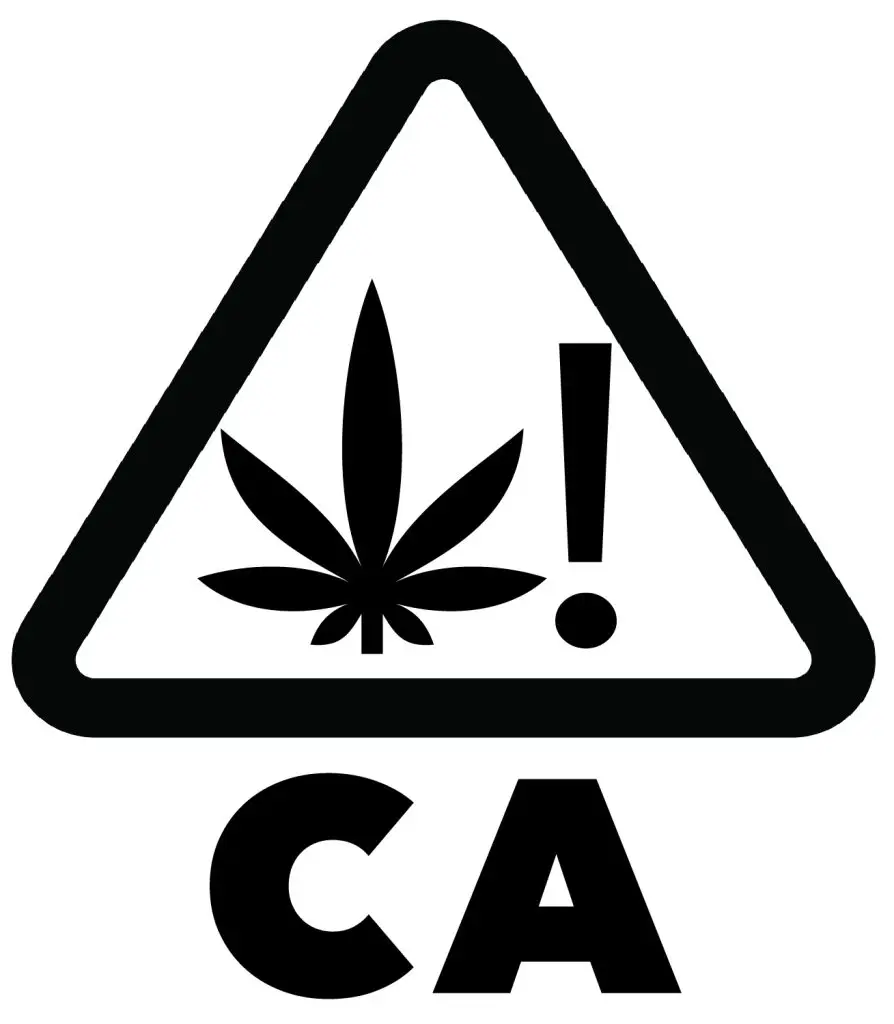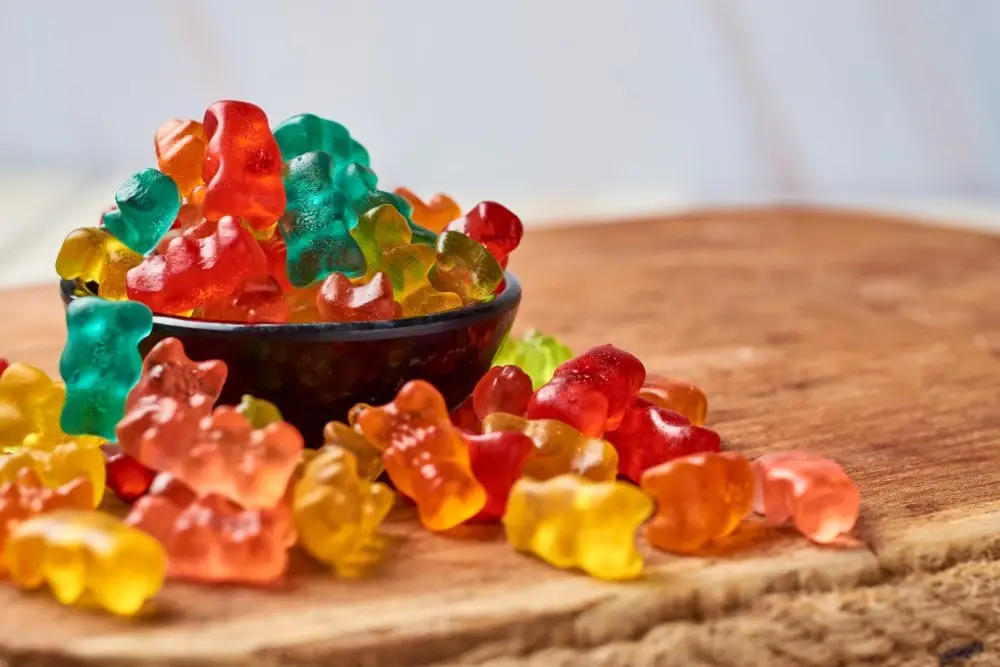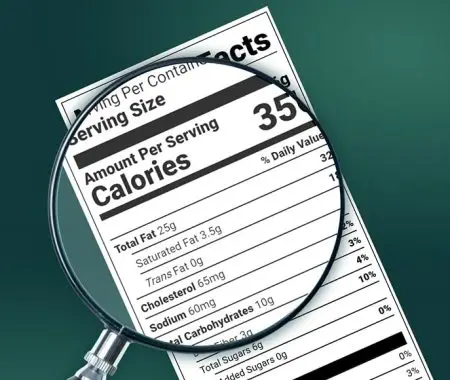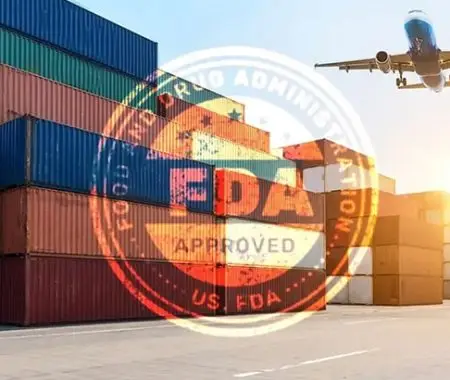This guide helps businesses in the food and beverage industry understand how to navigate FDA CBD labeling requirements and ensure their products meet current regulatory standards.
First, we will outline the context behind CBD regulation in the United States, including the FDA’s current stance on adding CBD to food and beverages, as well as the differences in regulations at both the federal and state levels.
Then, we’ll cover labeling requirements for CBD products according to FDA regulations in the United States and provide insight into the packaging requirements for CBD products.
Finally, we will explore additional information about CBD products in the United States, including which states have legalized them, and some additional risks.
While their software doesn’t provide CBD labels, Food Label Maker’s intuitive labeling solutions are designed to help product manufacturers in the United States meet FDA and state-level labeling requirements. They also have a team of professional nutritionists and regulatory experts who can provide you with guidance on how to navigate the CBD labeling landscape and ensure your products meet the required labeling standards.
Understanding FDA, Federal & State Labeling Requirements For CBD Products in the United States
In the United States, CBD labeling requirements are governed by a complex mix of federal regulations and state-specific laws. This layered system creates a challenging environment that food and beverage businesses must navigate carefully when selling CBD-infused products.
While the FDA currently prohibits the inclusion of CBD in foods and dietary supplements, many states allow such products to be manufactured and sold within their borders. However, even in states where CBD-infused products are legal, businesses must comply with both general FDA food labeling requirements and additional state-mandated rules to ensure consumer safety and product transparency.
Let’s take a closer look at what is required at each level.

What Are the Current FDA Regulations for the Labeling of CBD Products?
The FDA has not approved CBD as a food additive or dietary supplement ingredient. Under the Federal Food, Drug, and Cosmetic Act (FD&C Act), it is currently illegal to add CBD to food or beverages sold across state lines — even if the CBD is hemp-derived and compliant with the 2018 Farm Bill.
This restriction exists because CBD is the active ingredient in an approved prescription drug (Epidiolex). Under FDA regulations, once a substance is approved as a drug, it generally cannot be added to food or marketed as a dietary supplement unless the FDA specifically allows it, which it has not done for CBD.
Despite these federal restrictions, CBD products continue to appear on shelves in many states. This is primarily due to state-level laws that permit the production and sale of CBD-infused products for in-state consumption. However, the FDA continues to monitor the market and has issued warning letters to companies making unapproved medical or health claims or distributing products with inaccurate or misleading labels.
At this time, a formal federal labeling framework for CBD products has not been established. The FDA maintains that further research is needed to understand the safety of long-term CBD use, and has called on Congress to develop a clear legal landscape for CBD in food and supplements.
What Are the Current State-Level CBD Regulations?
Although the FDA prohibits CBD in food and dietary supplements at the federal level, several states have enacted laws allowing these products to be manufactured and sold within their borders. In these states, businesses can legally produce and distribute CBD-infused consumables, provided they comply with state-specific regulations and do not engage in interstate commerce.
Businesses operating in these states must follow specific state-level labeling requirements. While the rules vary, typical expectations include accurate ingredient lists, allergen declarations, manufacturer contact information, and net weight statements. Labels must also avoid misleading consumers or making unapproved health claims, such as suggesting the product treats pain, anxiety, or other medical conditions. Only FDA-approved drugs, like Epidiolex, may legally make such claims.
Due to this dual regulatory system, businesses selling across multiple states face complex compliance challenges. To avoid misbranding violations and regulatory penalties, it’s critical to stay informed about both federal law and each state’s evolving CBD rules — and to adjust your labeling and marketing practices accordingly.
Although the FDA has not federally approved CBD-infused products, CBD products are legal in states that have legalized their production and sale.
Common State-Level Packaging & Labeling Requirements for CBD Products
Many states have introduced additional labeling and packaging requirements for CBD products sold within their borders, such as universal symbols, total CBD amount per serving, and scannable QR codes for traceability.
Understanding these common state-level rules is essential for any business selling cannabis products beyond a single jurisdiction.
CBD Labeling Requirements For Food Products
Let’s explore the essential labeling components food businesses need to include on CBD products:
CBD Warning Statements and Disclaimers
FDA Disclaimers
- The FDA requires that CBD and cannabis products not be marketed as having therapeutic or health benefits unless approved as a drug. Therefore, most states mandate including disclaimers such as:
- “This product has not been evaluated by the Food and Drug Administration.”
- “This product is not intended to diagnose, treat, cure, or prevent any disease.”
Medical Use Disclaimers
- CBD labels must not include any statements suggesting that the product can be used as a substitute for medical treatment or pharmaceutical drugs. Some states go further by requiring disclaimers like:
- “Consult a healthcare professional before use if you have a medical condition or are taking any medication.”
Age and Pregnancy Warnings
- To protect young and pregnant individuals, many states require additional warnings, such as:
- “Not for use by individuals under the age of 18.”
- “Do not use if you are pregnant or breastfeeding.”
- These statements are especially important for ingestible products like edibles, beverages, and CBD oil, where the risk of misuse may be higher.
Product Identity
- The front of the package must clearly state what the item is (e.g., “CBD-Infused Tea” or “Hemp Extract Cookie”) to avoid misleading the consumer.
- Vague or ambiguous product names can result in misbranding under FDA rules.
Net Weight Description
- The outer packaging must accurately display the product’s weight or volume using both U.S. customary (e.g., oz) and metric (e.g., g or ml) units.
- This label information is typically required on the principal display panel (PDP).
Name/Address of Manufacturer
- Businesses must include the name and physical address of the manufacturer, packer, or distributor.
- This helps with traceability, consumer inquiries, and potential recall situations.
Ingredient List
- All ingredients must be listed in descending order by weight, including CBD or hemp extract.
- Mislabelled or omitted ingredients are a common reason for FDA and legal action.
Serving Size and Total Amount of CBD per Serving
- This element is required for clarity, consumer safety, and dosage transparency.
- While also part of the Nutrition Facts panel, some states require this info to be displayed clearly on the front or back panel, not just within the label box.
- This supports consumer understanding and satisfies states like New York and Texas with more detailed labeling laws.
- Some states also require total CBD content per package (e.g., 100 mg per bottle) for edibles and beverages, to ensure total dosage transparency.
Intended Use Statement or Consumption Instructions
- Many states (like New York and Utah) require labels to include clear instructions for use or a suggested serving size.
- Example: “Take one gummy per day” or “Shake well before use.”
- This helps reduce misuse and provides dosing clarity to the consumer.
Batch/Lot Number
- A batch or lot number is often required for traceability, especially in the event of a recall or adverse event report.
- It ensures that regulators and consumers can trace the product back to a specific batch or production run.
Expiration Date or Best-by Date
- This informs consumers of the product’s shelf life and helps ensure they’re consuming CBD at full potency.
- Some states mandate this date on all ingestible CBD products.
QR code to Certificate of Analysis (COA)
- Increasingly required by states like Texas, a scannable QR code must link to a third-party Certificate of Analysis showing the product’s cannabinoid profile and confirming it meets safety standards.
- This enhances transparency and supports consumer confidence.
Storage Instructions
- Required in some states or recommended as best practice for product integrity and consumer safety.
- Examples include:
- “Store in a cool, dry place.”
- “Keep refrigerated after opening.”
Nutrition Facts Requirements For Food Products Containing CBD
In states where CBD has been legalized, mandatory nutrition facts labeling regulations include:
Serving Size and Servings Per Container
- The serving size must reflect how much of the product is typically consumed in one sitting (e.g., one brownie, one bottle).
- This helps consumers understand how much CBD (and other nutrients) they are ingesting per serving and per package.
Calories and Macronutrients
- The FDA requires all conventional food labels to include calories, fat, carbohydrates, sugar, and protein, regardless of functional ingredients like CBD.
- Even if the product is focused on wellness or relaxation, these nutritional values must be provided clearly and accurately.
Total Amount of CBD per Serving
- While not currently a federal requirement, it’s considered best practice (and often required at the state level) to include the amount of CBD in the product.
- Should be listed in milligrams (mg) per serving.
- This helps consumers take the appropriate dose and ensures transparency about CBD content.
Other Active Cannabinoids (if applicable)
- If the product contains THC (within 0.3% legal hemp limit) or other cannabinoids like CBN or CBG, listing may be required or expected by state regulators.
- Listing these cannabinoids also builds consumer trust through transparency.
Allergen Information (if present)
- Must comply with the Food Allergen Labeling and Consumer Protection Act (FALCPA) allergen declarations if the product contains common allergens (e.g., milk, soy, nuts)
- Also applies whether allergens are directly present or may have been introduced during processing (e.g., “processed in a facility that also handles nuts”).
When is a Nutrition Facts Panel Required?
The FDA requires a Nutrition Facts label on almost all packaged food and beverage products intended for retail sale in the United States. This includes CBD-infused food products when:
- The product is marketed as a conventional food (e.g., baked goods, beverages, snacks).
- The product is sold to consumers across states, ensuring that the state it is sold in has legalized CBD.
- The product is not exempt. Examples of exemptions include:
- Small businesses: If a business produces very low volumes and meets certain conditions, it may be exempt.
- Restaurant meals or buffet food for immediate consumption: Food sold in restaurants, cafeterias, or similar establishments don’t need Nutrition Facts because it’s not packaged for retail sale.
The labels must comply with all standard formatting, content, and placement requirements set out by the FDA. Products positioned as supplements must instead use a Supplement Facts label and not a Nutrition Facts label.
See How FoodLabelMaker Can Help You
Mandatory Packaging Requirements for CBD Food Products in the United States
Packaging rules for CBD food products vary on a state-by-state basis, but many follow principles modelled after cannabis labeling regulations in states like California, Colorado, and New York. The following overview outlines core packaging requirements based on regulations from state cannabis control agencies, including California’s Department of Cannabis Control (DCC), and may help manufacturers navigate the evolving landscape of compliant packaging for CBD food products.
Universal Symbol and THC Warning (if applicable)
If the CBD product contains any detectable level of THC, even below the federal 0.3% limit, some states require a universal cannabis symbol on the product display panel.
This symbol must not be altered in appearance and must meet minimum size specifications (typically at least ½ inch by ½ inch).
Even hemp-derived CBD beverages may fall under this rule if THC is present, as it helps distinguish regulated cannabinoid products from general food items.
Below is an example of the Universal Symbol required on CBD product labels:

Source: Department of Cannabis Control – California
THC Content Disclosure (Even if Trace)
Some states (like California and Colorado) require the exact THC content instead of just including a THC warning symbol. This must often be disclosed both per serving and per package in mg.
Child-Resistant Packaging (CR)
In many states, CBD-infused food products, especially edibles or gummies that could resemble traditional sweets or snacks, must be sold in child-resistant packaging. Child-resistant packaging is designed to be difficult for children under five to open and must meet federal standards under the Poison Prevention Packaging Act (PPPA). Requirements include:
- Certified CRP containers (as tested under 16 CFR §1700.15(b)(1))
- Heat-sealed, single-use packaging with no easy-open tabs or flaps (minimum 4 mils thick)
- Pry-off, crown-style bottle caps for single-serve beverages
Multi-serving packages must be resealable and retain their child-resistant features after initial opening, especially for edibles and orally consumed CBD products.
Tamper-Evident Packaging
To protect consumers and preserve product quality, many states mandate that packaging clearly show if it has been opened or altered before purchase. Examples include:
- Heat-sealed seams
- Breakable shrink bands or film
- Stickers or labels that tear upon opening
This requirement enhances consumer safety and discourages tampering or contamination before sale.
Opaque Packaging (for Edibles)
For edible CBD products, certain states (e.g., Utah and California) require opaque or non-see-through packaging. This is especially critical for items that resemble confectionery or snacks, to prevent appeal to children.
Exceptions may apply to beverages, which are sometimes permitted in tinted or clear glass containers depending on local rules.
Durability and Safety
Packaging must be designed to ensure that products are protected during storage, shipping, and handling. It should be robust enough to prevent leaks, breakage, or product degradation. In particular:
- Materials must comply with FDA food contact safety standards (21 CFR 174–186)
- UV-protective packaging is recommended for light-sensitive products like tinctures and oils
- Packaging should be airtight and moisture-resistant to extend shelf life
Additional Information About CBD Products in the United States
As CBD continues to grow in popularity, food and beverage manufacturers are increasingly exploring its inclusion in everyday products.
However, the regulatory landscape across the United States remains complex. While some states have legalized the sale of CBD-infused consumables, the federal stance, led by the FDA, still prohibits CBD as an ingredient in food and dietary supplements.
As a result, businesses must closely follow both federal rules and their specific state laws to ensure full compliance.
What Food and Drink Products Can Contain CBD in the United States?
CBD is being added to a wide range of food and beverage products — often without consistent regulatory oversight. While some states have legalized the manufacturing and sale of CBD-infused foods and drinks within their borders, the FDA maintains that CBD cannot legally be added to any food or supplement sold in interstate commerce. This prohibition applies even if the CBD is hemp-derived and meets the requirements of the 2018 Farm Bill.
Manufacturers should exercise caution when developing and distributing these products, especially since legality and enforcement risk vary widely from one jurisdiction to another.
Here are some of the most common categories of CBD-infused products seen in the food and beverage industry:
- CBD-Infused Beverages
- Baked Goods with CBD
- CBD-Enhanced Snacks and Edibles
- CBD Condiments, Syrups, and Spreads
- CBD Supplements (if positioned as food/dietary supplement)

What States Have Legalized CBD Products?
As of April 1, 2025, the legality of CBD products varies across U.S. states. According to the DISA map, states can be categorized based on their stance on cannabis and CBD:
Fully Legal States (Recreational and Medical Use Permitted):
Alaska, Arizona, California, Colorado, Connecticut, Delaware, District of Columbia, Illinois, Maine, Maryland, Massachusetts, Michigan, Minnesota, Missouri, Montana, Nevada, New Jersey, New Mexico, New York, Ohio, Oregon, Rhode Island, Vermont, Virginia, Washington
Medical Use Permitted States (CBD Products Allowed for Medical Purposes):
Alabama, Arkansas, Florida, Georgia, Hawaii, Louisiana, Mississippi, New Hampshire, North Dakota, Oklahoma, Pennsylvania, South Dakota, Utah and West Virginia.
While these states may permit the use of cannabis or CBD products, the regulations surrounding CBD in food and beverage items can differ widely. This includes variations in allowable THC content, product types, packaging rules, and whether retail sales are permitted. Businesses must carefully review each state’s specific laws to ensure their products are legally marketed and labeled.
What Are the Risks of Selling Cannabis Products or CBD Products?
Selling CBD-infused food or supplement products in the United States carries significant regulatory risk, especially at the federal level. Under the FD&C Act, the FDA prohibits the addition of CBD to any food or dietary supplement sold across state lines, regardless of whether the CBD is hemp-derived.
Enforcement actions may include:
- FDA warning letters
- Product recalls or seizures
- Fines for misbranding or adulteration
- Legal consequences for making unapproved health or medical claims
Even within states that allow CBD, failing to comply with labeling, packaging, or distribution rules can result in regulatory penalties and damage your brand’s reputation. Businesses should ensure they meet both federal and state requirements to avoid costly legal setbacks and preserve consumer trust.
Final Thoughts on Staying Compliant with FDA CBD Labeling
Navigating CBD labeling regulations in the U.S. is challenging due to the FDA’s current position that CBD is not an approved food additive or dietary supplement ingredient. However, state legalization of these products allows some flexibility for businesses in this space.
Compared to international frameworks, such as the Canadian CFIA Cannabis Labeling Regulations, the FDA takes a stricter, more limited approach. This is why businesses must keep up to date with the agency’s evolving stance, and enforcement priorities may shift with new research or legislation.
To stay compliant, food and beverage businesses should:
- Monitor FDA news releases and updates in current trends
- Understand state-specific packaging rules
- Avoid making health or medical claims not supported by research or clinical data
- Ensure your labels meet all ingredient, allergen, and net quantity of contents requirements
Although our nutrition label maker software does not currently generate CBD-specific nutrition labels, it empowers businesses in the food industry to create accurate, compliant product labels that align with FDA, CFIA, and international standards.
With built-in features like automatic allergen alerts, a serving size calculator, and customisable label formats, the platform simplifies regulatory compliance for the labelling of food products.
Learn more about the nutrition label maker software, and test it using our free nutrition label generator tool.
With our hire a labeling expert service, you outsource the creation of your regulatory compliant food product labels. These include nutrition facts tables, allergen declarations, ingredient statement lists, and full nutritional breakdown. Handled by certified nutritionists and food labelling experts.
FAQs:
Should I list Daily Value Percentages on CBD Product Labels in the United States?
No. The FDA only allows % Daily Value (%DV) listings for nutrients with established Reference Daily Intakes (RDIs) or Daily Reference Values (DRVs), like vitamins and minerals.
Since CBD currently does not have an established Daily Value and is not recognised as an essential nutrient, including a %DV may be considered misleading and non-compliant under the Federal Food, Drug, and Cosmetic Act (FD&C Act).
Until the FDA provides specific guidance or approves CBD as a dietary ingredient, it is best to avoid listing any %DV on CBD product labels.
Can I make health or wellness claims on my CBD product label in the United States?
No. The FDA prohibits any unapproved health, therapeutic, or structure/function claims for CBD products. This includes direct statements that a product can treat, prevent, or cure serious diseases or conditions such as pain, anxiety, inflammation, or insomnia.
Even broad wellness-related phrases like “supports relaxation” or “promotes calm” should be used with extreme caution, as they may still be considered misleading or imply drug-like effects. Only FDA-approved drugs, such as Epidiolex, may legally carry such claims.
What happens if my CBD label doesn’t comply with FDA requirements?
If your CBD product label is found to be misbranded or adulterated – for example, by making unapproved claims or failing to meet ingredient labeling standards – the FDA may issue a warning letter, initiate a recall, or pursue enforcement actions under the FD&C Act.
Other consequences may include:
- Product recalls
- Monetary fines
- Referral to the Federal Trade Commission (FTC) for deceptive marketing
In addition to regulatory action, non-compliant labels can damage your brand reputation and limit your ability to distribute products across state lines. For peace of mind, consult a regulatory expert or a certified nutritionist to review your labels for compliance.



